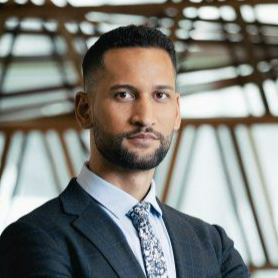A trial is to be launched in Wellington, offering support to families with children under five who exhibit signs of autism.
Raupī te Raupō is undergoing a 20-week trial period, during which 60 families will receive weekly sessions aimed at enhancing their understanding and ability to support their autistic child.
Clinical lead Dr Hannah Waddington says the trial is also focused on training more professionals who are in contact with children on a daily basis with the ability to identify early signs of autism. “So that’s the GPs, early childhood, Plunket nurses and so forth,” she says.
“We want these professionals to have an idea of what the signs of autism look like so that they can be putting the family on to that pathway.”
Most autistic children can be reliably diagnosed by age two but the average age of diagnosis in New Zealand is six and a half years.
“Recognising autism at a younger age leads to significantly improved outcomes for children,” Waddington says.
Upon identification, families can access support through Raupī te Raupō, which offers 17 sessions with a coach. These sessions include discussions on beneficial strategies for the child, alongside practical activities promoting play and interaction within the family.
ASD Dads support trial
Jordan Ikitule is the founder of ASD Dads (Autism Spectrum Disorder Dads), an initiative that aims to create a safe space for parents of children with autism with a focus on Pasifika families. He says trials like Raupī te Raupō are “definitely needed in our autism space”.
“It’s really vital to have these sorts of programmes because the earlier we can identify autism, the better we can support our kids. We really support this kaupapa and hope we can work with them in the future.”
ASD Dads recently hosted its first charity event, which gathered more than 2,000 people running for autism in South Auckland.
“We had to cut the link because the event was originally planned for 300-400 people and we only had 20 car parks. So next time we will go bigger,” he says.
Māori Advisory Board
Waddington highlights the collaborative development of the programme, which involved autistic individuals and a Māori advisory group, and asking them what values they thought the programme should be built upon.
“One of the key things that the Māori advisory group contributed was a set of very important guiding values: whanaungatanga, tuakiritanga, manaakitanga, kaitiakitanga and building towards kotahitanga. Having these values means that our programme has a heart to it, and that we are coming back to those values above all else.”
Waddington expanded on the name of the programme Raupī te Raupō, gifted by a professor at Te Herenga Waka, Mere Skrerrett (Ngāi Tahu, Ngāti Rakiāmoa, Ngāti Ruahikihiki, Ngāti Māhuta, Ngāti Unu, Ngāti Maniapoto, Ngāti Pikiao, Ngāti Te Rangiunuora, Ngāti Pūkeko).
Raupō is the bullrush plant that you find in the wetland ecosystem and it is a very valuable, important, and highly cherished plant. And raupī is the idea of nurturing that plant. So the programme is a metaphor for how we should nurture, cherish, and value our children and families, just as we should with the raupō plant.
High demand anticipated
While the pilot programme is currently limited to Wellington due to funding constraints, Waddington anticipates high demand and hopes for future expansion.
“The programme’s ultimate goal is to empower parents and families to embrace a positive perspective on their child’s condition, fostering an environment where the child can thrive,” Waddington says. “The trial’s success could pave the way for nationwide implementation with additional funding.”
Initial feedback from families participating in the programme has been overwhelmingly positive, indicating its potential to make a meaningful difference in the lives of autistic children and their families.
The first of the trials is to begin next week.


